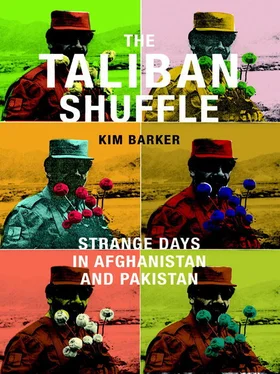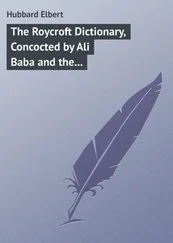I planned a trip to Afghanistan, where the politics were much less murky, where the suicide bombers were much less effective, to write about alleged negotiations with the Taliban.
That’s why I had to see Nawaz Sharif again. Emissaries from the Afghan government and former Taliban bigwigs had flown to Saudi Arabia for the feasts that marked the end of Ramadan. But they had another goal. Afghan officials had been hoping that the influential Saudi royal family would moderate negotiations between their battered government and the resurgent militants. Sharif, in Saudi Arabia at the time, was rumored to have been at those meetings. That made sense. He was close to the Saudi king. He had supported the Afghan Taliban, when the regime was in power.
I called Sharif and told him why I wanted to see him.
“Most welcome, Kim,” he said. “Anytime.”
We arranged for a lunch on a Saturday in October—I was due to fly to Kabul two days later. Samad and I decided to drive the five hours from Islamabad to Raiwind instead of flying. Samad showed up on time, but I overslept, having been up late the night before. I hopped out of bed and rifled through my Islamic clothes for something suitable because I liked to dress conservatively when interviewing Pakistani politicians. I yanked out a red knee-length top from India that had dancing couples embroidered on it. Potentially ridiculous, but the nicest clean one I had. We left Islamabad.
“You’re gonna have to hurry, Samad,” I said. “Possible?”
“Kim, possible,” he said. It always cracked me up when I got him to say that.
We made good time south, but got lost at some point on the narrow roads to Raiwind. Sharif sent out an escort vehicle with flashing lights to meet us. We breezed through security—we actually didn’t even slow down—and I forced Samad to stop in the middle of the long driveway leading up to Sharif’s palace. I had forgotten to comb my hair or put on any makeup. I turned the rearview mirror toward me, smoothed down my messy hair with my hands, and put on some lipstick. Twenty seconds. “Good enough,” I pronounced my effort, and flipped the mirror back to Samad.
We reached the imposing driveway. Sharif actually waited in front of his massive front doors for me, wearing a blue suit, slightly snug around his waist. He clasped his hands in front of his belt. It was clear that our meeting was important. Sharif was surrounded by several lackeys, who all smiled tight-lipped before looking down at the ground. I jumped out of the car, sweaty after the ride, panicked because I was late. I shook Nawaz’s hand—he had soft fingers, manicured nails, baby-like skin that had probably never seen a callous.
“Hello, Kim,” he said.
“Hey, Nawaz. Sorry I’m late.”
In the sitting room, I immediately turned on my tape recorder and rattled off questions. Was Sharif at the negotiations? What was happening? He denied being at any meetings, despite press reports to the contrary. I pushed him. He denied everything. I wondered why he let me drive all this way, if he planned to tell me nothing. At least I’d get free food.
He looked at my tape recorder and asked me to turn it off. Eventually I obliged. Then Sharif brought up his real reason for inviting me to lunch.
“Kim. I have come up with two possible friends for you.”
At last.
“Who?”
He waited a second, looked toward the ceiling, then seemingly picked the top name from his subconscious. “The first is Mr. Z.”
That was disappointing. Sharif definitely was not taking this project seriously.
“Zardari? No way. That will never happen,” I said.
“What’s wrong with Mr. Zardari?” Sharif asked. “Do you not find him attractive?”
Bhutto’s widower, Asif Ali Zardari, was slightly shorter than me and sported slicked-back hair and a mustache, which he was accused of dying black right after his wife was killed, right before his first press conference. On many levels, I did not find Zardari attractive. I would have preferred celibacy. But that wasn’t the point. Perhaps I could use this as a teaching moment.
“He is the president of Pakistan. I am a journalist. That would never happen.”
“He is single.”
Very true—but I didn’t think that was a good enough reason.
“I can call him for you,” Sharif insisted. I’m fairly certain he was joking.
“I’m sure he has more important things to deal with,” I replied.
“OK. No Mr. Z. The second option, I will discuss with you later,” he said.
That did not sound promising. We adjourned our meeting for lunch in the dining room, where two places were set at a long wooden table that appeared to seat seventy. We sat in the middle of the table, facing each other over a large display of fake orange flowers. The food was brought out in a dozen courses of silver dishes—deep-fried prawns, mutton stew, deep-fried fish, bread, a mayonnaise salad with a few vegetables for color, chicken curry, lamb. Dish after dish, each carried by waiters in traditional white outfits with long dark gray vests. Like the good Punjabi that Sharif was, he kept pushing food on me.
“Have more prawns. You like prawns, right?”
He insisted on seconds and thirds. It felt like a make-believe meal. I didn’t know which fork to use, not that it mattered in a culture where it was fine to eat with your hands, but the combination of the wealth, the empty seats, and the unspoken tiger in the room made me want to run screaming from the table. I needed to get out of there.
“I have to go.”
“First, come for a walk with me outside, around the grounds. I want to show you Raiwind.”
“No. I have to go. I have to go to Afghanistan tomorrow.”
Sharif ignored that white lie and started to talk about where he wanted to take me.
“I would like to take you for a ride in the country, and take you for lunch at a restaurant in Lahore, but because of my position, I cannot.”
“That’s OK. I have to go.”
“I am still planning to buy you a phone. Which do you like—BlackBerry, Nokia, iPhone?”
So now he knew what a BlackBerry was. But I would not bend.
“You can’t buy me a phone,” I said.
“Why not?”
“You’re the former prime minister of Pakistan. No.”
“Which do you like?” He kept pressing, wouldn’t let it go. BlackBerry, Nokia, iPhone, over and over. That scene from The Wizard of Oz started running through my head: Lions and tigers and bears, oh my!
“BlackBerry, Nokia, or iPhone, Kim?”
“The iPhone,” I said, because I already had a Nokia and a BlackBerry. “But I still can’t take one from you.”
As we left, Samad insisted on getting our picture taken with Sharif. Samad was a Bhutto man, which meant he should have been a Zardari man, but increasingly, like many of Bhutto’s followers in Pakistan, Samad had grown disenchanted with Zardari. And increasingly, Samad liked Sharif. Everyone liked Sharif. Behind the scenes, the tiger of Punjab was growing very powerful. His decision to break with Zardari over the issue of restoring the judges had proved to be smart. As Zardari’s government floundered and flip-flopped, Sharif looked more and more like an elder statesman.
Regardless, I told my boss it was no longer a good idea for me to see Sharif. He was married, older, rich, and powerful. As a pleasant-looking, pedigree-lacking American with hair issues, I was an extremely unlikely paramour. But Sharif had ended our visit with a dangling proposition—the mysterious identity of a second potential friend. I decided to stick to a tapped-phone relationship.
As soon as I landed in Kabul, Farouq and I drove to the Defense Ministry to ask about negotiations with the Taliban. Farouq parked the car. We started walking. I had always regarded this long path, leading past halfheartedly practicing Afghan soldiers, as my own personal march toward sexual harassment. I thought happy thoughts. Farouq talked our way past the first checkpoint. But then we reached the second checkpoint.
Читать дальше











